Last updated on January 9th, 2025
Featured image: Thaipusam or Thaipoosam is a Tamil Hindu festival celebrated on the full moon of the Tamil month of Thai, usually coinciding with Pushya star, known as Pusam in Tamil. The festival commemorates the legend of the goddess Parvati offering her son, Murugan a vel so he could vanquish the asura Surapadman and his brothers./ Photo credit: Malaysia Tourism
Malaysia’s many festivals are open to everyone
by Carolyn Ray
In Malaysia, the capacity for celebration knows no limits. Home to a broad swathe of ethnicities including Malays, Chinese, Indians, expats and Indigenous groups, Malaysia’s festivals reflect different belief systems and are accessible to everyone. From the bustling streets of Kuala Lumpur to the serene villages of Borneo, Malaysia’s vibrant festivals are a testament to the country’s cultural diversity and deep-rooted spirit of religious harmony.
In Malaysia, every celebration—whether it’s the colorful chaos of Chinese New Year, the joyful fasting of Ramadan, or the radiant lights of Deepavali—offers a unique window into the heart of a nation where unity in diversity is not just a concept, but a way of life.
These events are more than entertainment — they are a window into Malaysia’s religious tolerance and welcoming spirit. Many can be traced back to ancient beliefs and remind us of the beauty and diversity of our world.
“My favorite national festival is Hari Raya Aidil Fitri (Eid) in June,” says Linawati Ismail, the Deputy Director of Tourism Malaysia – Americas. “It’s a big celebration of food after our fasting month and an opportunity for family and friends to get together. It’s also the main day of the year that the ‘open house’ practice takes place where everyone can just walk into everyone’s houses basically uninvited and be welcomed with open arms.
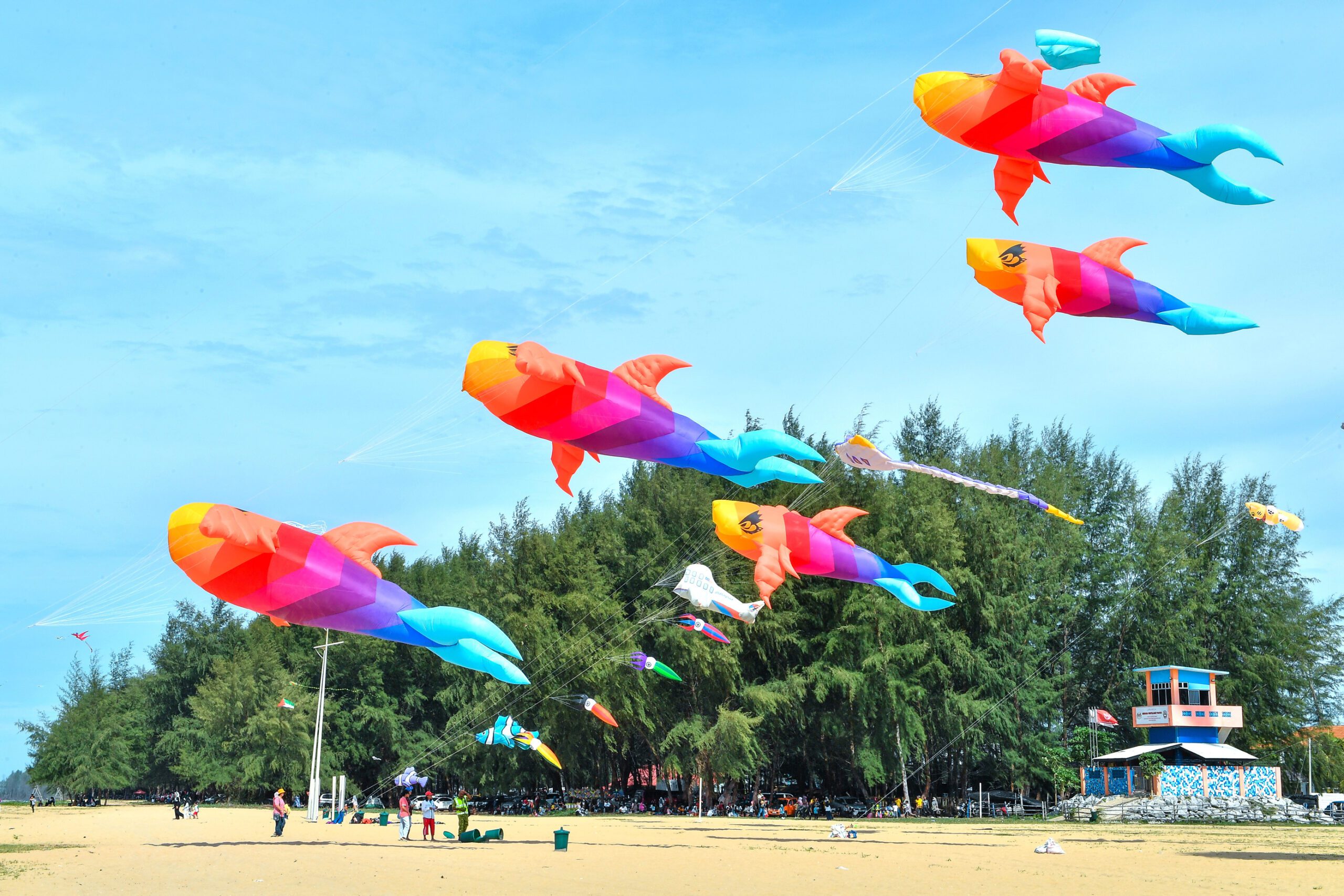
Huge and colourful kites fly on steady winds over the beaches of Tumpat town in Kelantan where the Kelantan International Wau Festival, Malaysia’s multi-day international kite festival, is held every year. / Photo credit: Malaysia Tourism
Malaysian festivals not to miss
There are many kinds of festivals in Malaysia, which usually reflect the religions of the society celebrating. For almost all festivals, they are open – and often free – to all who wish to attend.
“In Malaysia, everyone is welcome to participate in any of the celebrations regardless of any religion they are because they believe in togetherness in everything,” Ismail says. “Malaysian people always open their doors for people to come and celebrate the occasion together.”
1. Chinese New Year (January 29, 2025)
Chinese New Year is the most anticipated holiday period each year for the millions of Malaysians with Chinese ancestry. It is also called ‘Spring Festival’ or Lunar New Year, based on the Chinese lunar calendar. In 2025, the first day of Chinese New Year is January 29, the Year of the Snake.
In Malaysia, houses are cleaned out thoroughly before it arrives to ‘sweep out any bad luck,’ but brooms are hidden away on New Year’s Day for fear of ‘sweeping away the good luck’ that the arrival of a new year brings. New clothes, to be worn on New Year’s Day, and a large stash of food for New Year’s Eve dinner, are also purchased in advance.
Greeting cards are also commonly exchanged. These include both the red packets or “Ang Pow” given by parents to their children or among relatives, and the Chinese New Year Greeting cards.
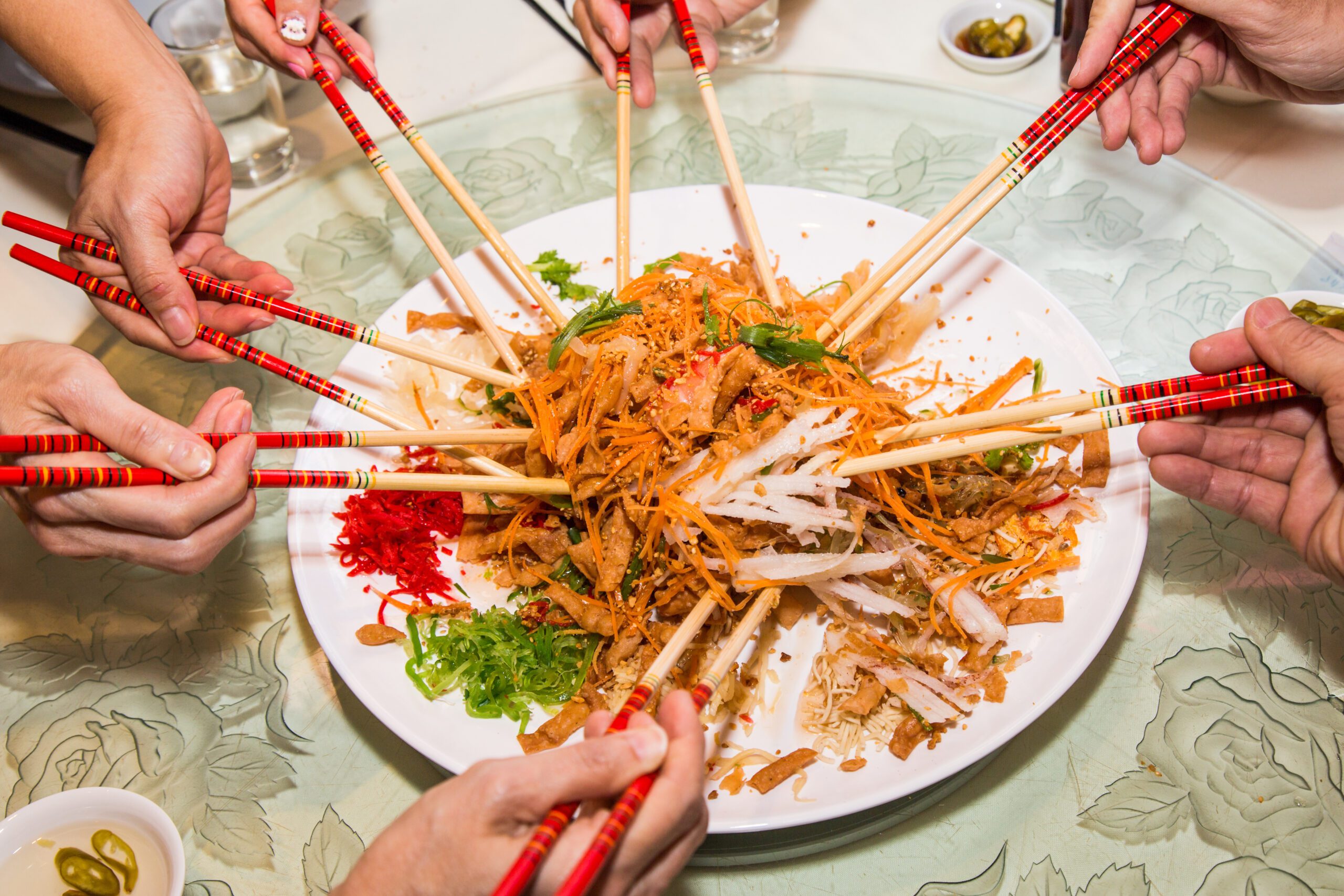
Photo: Yusheng, yee sang or yuu sahng, or Prosperity Toss, also known as lo sang, is a Cantonese-style raw fish salad. It usually consists of strips of raw fish, mixed with shredded vegetables and a variety of sauces and condiments, among other ingredients, served on Chinese New Year / Photo credit: Malaysia Tourism
2. Hari Raya Aidilfitri (March 31 – April 1, 2025)
The Festival of the Breaking of the Fast, called Hari Raya Aidilfitri, is a religious holiday celebrated by Muslims. Hari Raya Aidilfitri comes after the holy month of Ramadhan, Hari Raya Haji for the Muslim, for the Chinese, the Mid-Autumn Festival and Chinese New Year, Deepavali, and Wesak
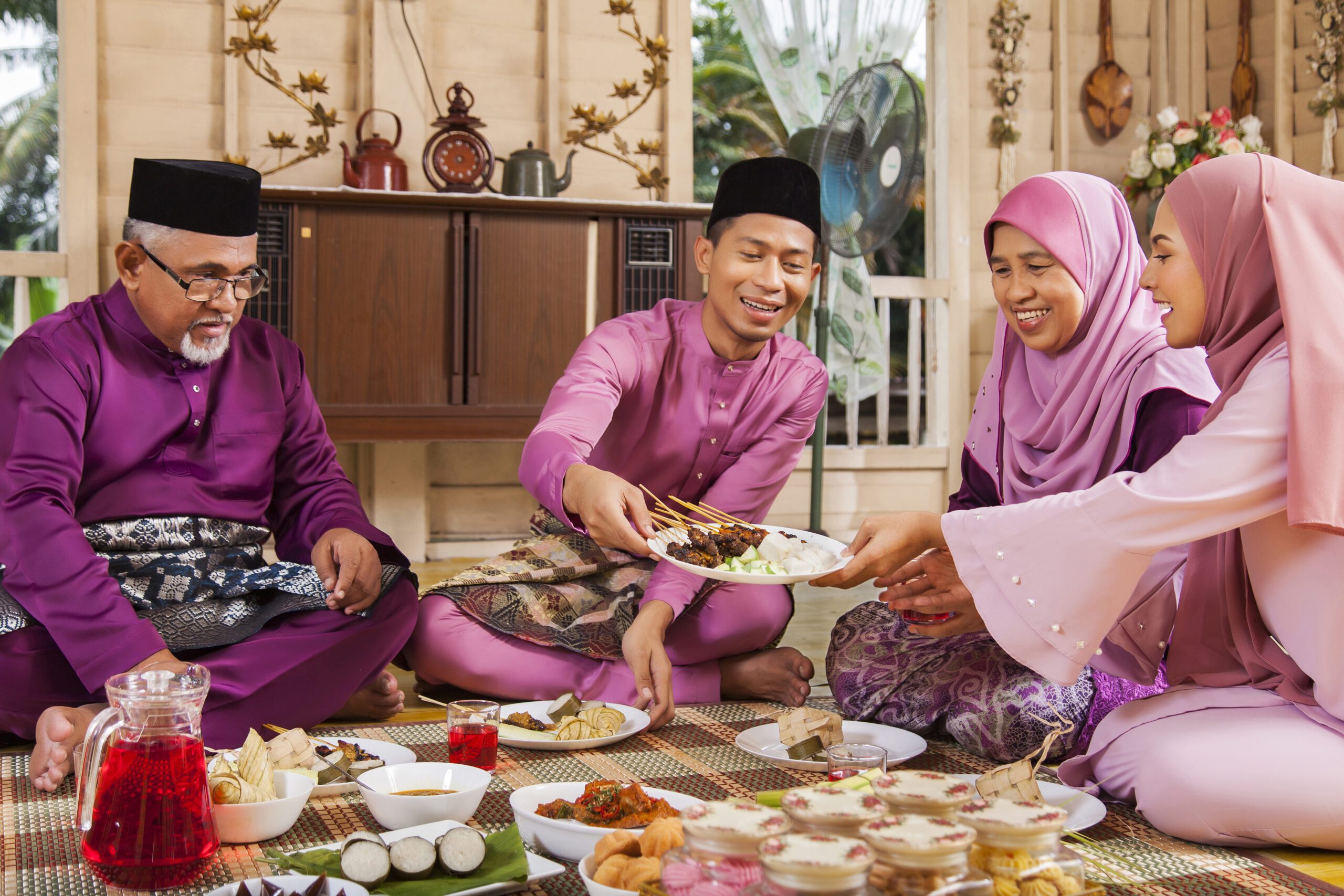
Muslim family having food during Hari Raya Celebration / Photo credit: Malaysia Tourism
3. Colours of Malaysia, or Citrawarna (May and June)
During the month-long celebration of Colours of Malaysia, or Citrawarna, the whole of Malaysia is on parade. Since its beginnings in 1999, it has become a major tourism event bringing thousands of visitors from near and far. The celebration begins in Dataran Merdeka, or Merdeka Square, in Kuala Lumpur, with a parade where each of Malaysia’s 14 states put on a spectacular show filled with song, dance and culture. Citrawarna is the best time for visitors to see the entirety of Malaysia.
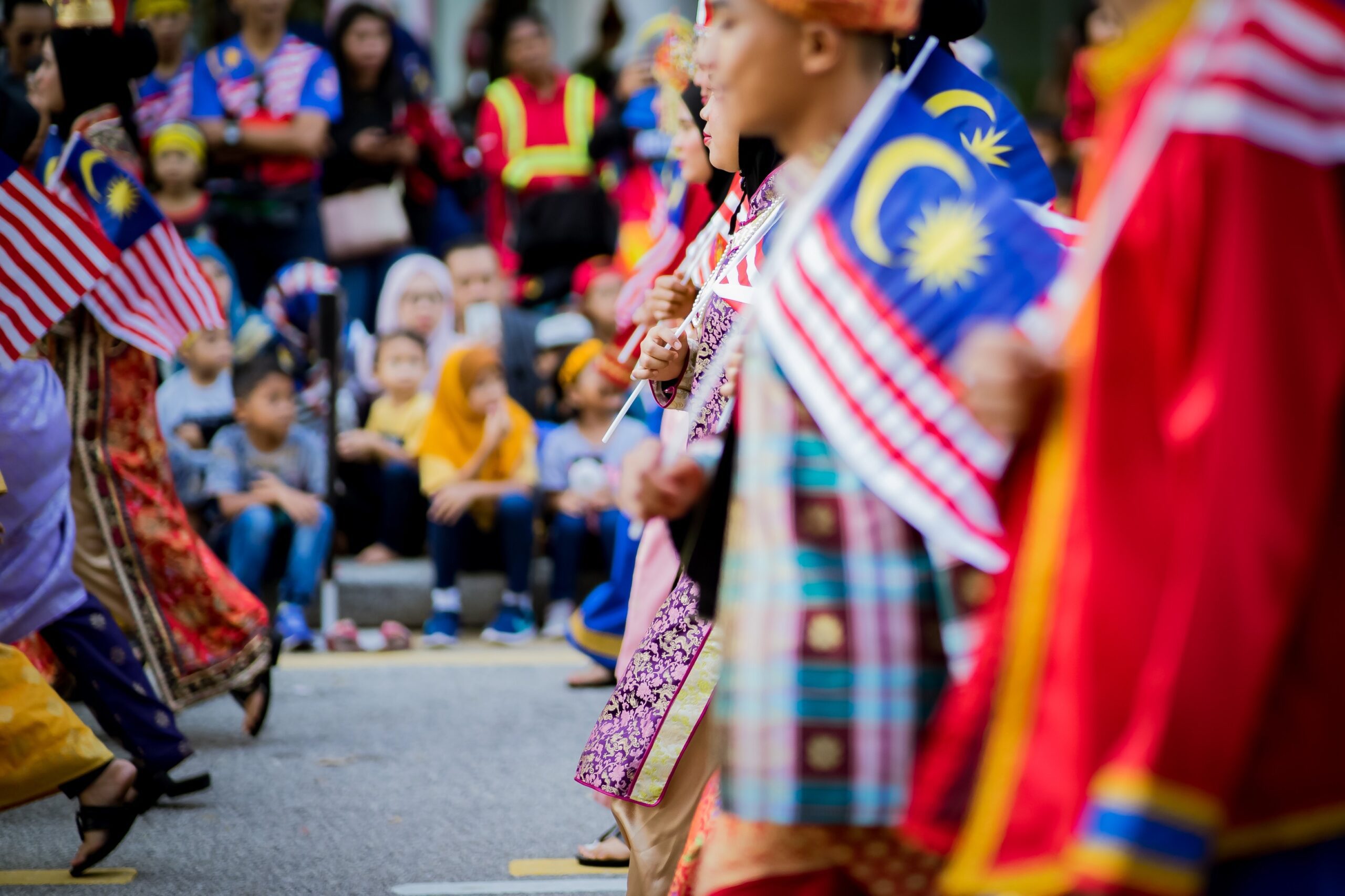
The Colours of Malaysia cultural extravaganza/ Photo by ellinnur via Envato
4. Rainforest World Music Festival in Sarawak (June 20 -22, 2025)
The Rainforest World Music Festival (RWMF) has grown from a small event in 1998 to an internationally recognized music festival and runs at the end of June in Sarawak. This three-day music festival celebrates the diversity of world music and includes music workshops, cultural and craft displays, and evening concerts in an actual rainforest setting, under the dramatic backdrop of Mount Santubong.
“The one festival that shouldn’t be missed by a visitor to Malaysia is the Rainforest World Music Festival in Sarawak,” says Ismail. “It’s a homegrown event featuring national and internal artists and usually takes place at the Sarawak Cultural Village, so it allows visitors both a day and night activity in the destination.”
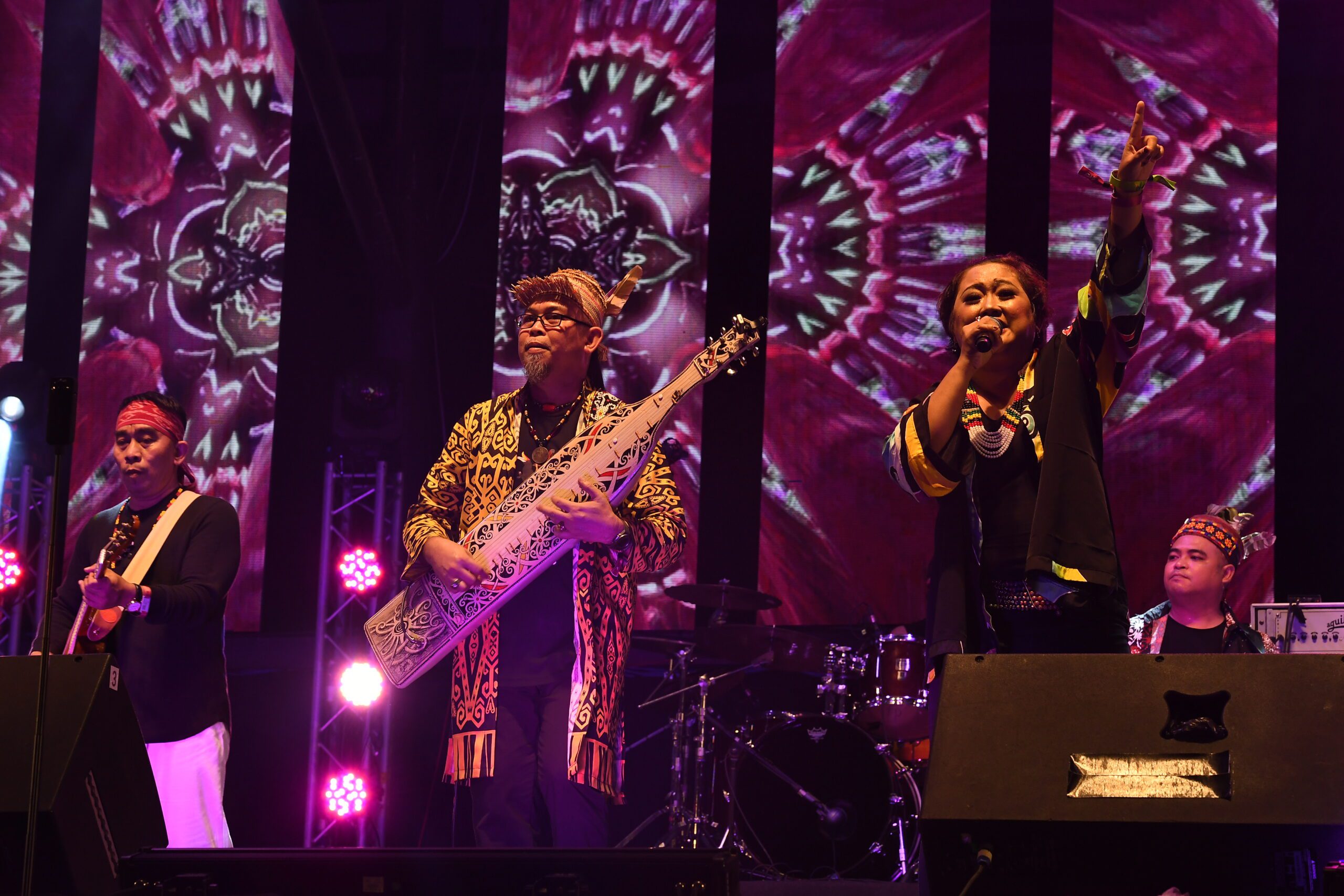
The Rainforest World Music Festival is an annual three-day music festival celebrating the diversity of world music, held in Kuching, Sarawak, Malaysia, with daytime music workshops, cultural displays, craft displays, food stalls, and main-stage evening concerts. / Photo credit: Malaysia Tourism
5. Hari Gawai or Sarawak Day (June 1 & 2, 2025)
When it comes to regional festivals, Ismail prefers Tadau Kaamatan, a harvest festival celebrated in Sarawak and Sabah, usually in June.
In Sarawak, the festival is known as Hari Gawai. It’s a celebration of thanks to the gods for the food produced in the region.
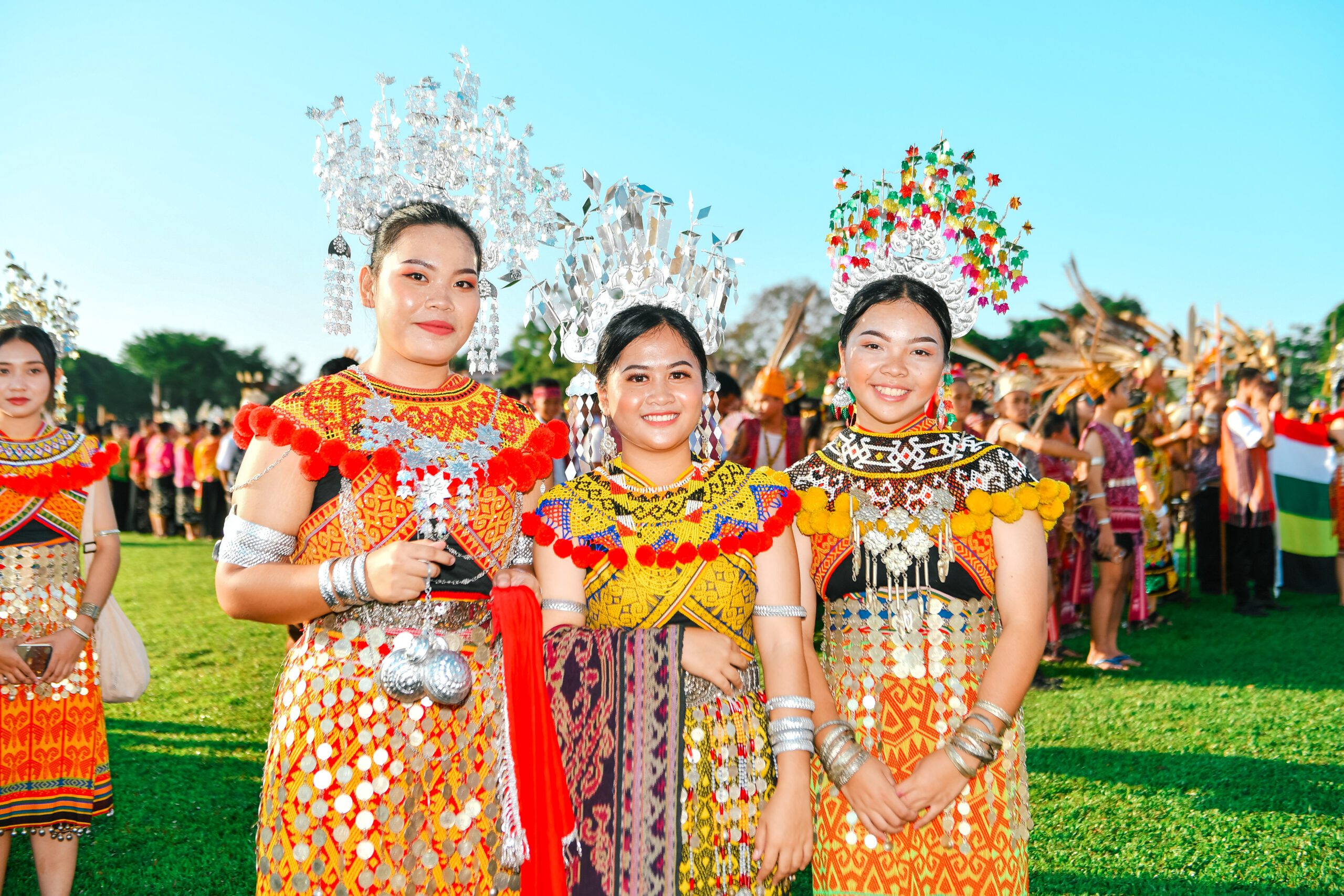
One of Sarawak’s biggest and most important festivals, Gawai Dayak is a celebration that marks the end of the rice harvesting season. Gawai means festival while Dayak is a collective name for the ethnic groups of Iban, Bidayuh and Orang Ulu communities/ Photo credit: Malaysia Tourism
6. Malaysia’s National Day (August 31, 2025)
On Malaysia’s National Day, also known as Merdeka Day, Malaysians celebrate their independence from the British Empire on August 31 with a variety of events including parades, cultural performances by dancers and singers and air shows by the Royal Malaysian Airforce.
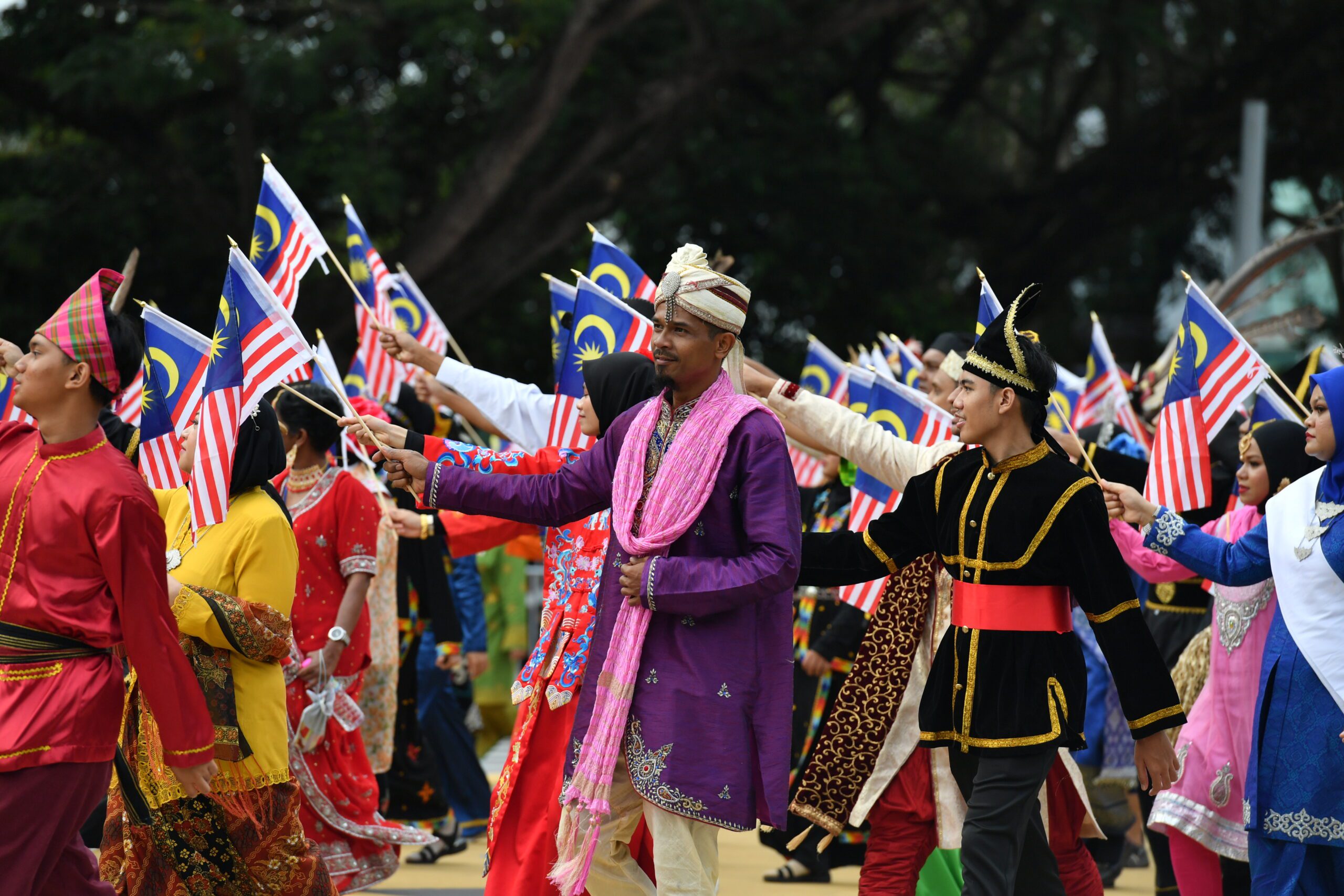
Independence Day, also known as National Day, is the independence day of the Federation of Malaya from the British Empire. It commemorates the Malayan Declaration of Independence of 31 August 1957, and is defined in article 160 of the Constitution of Malaysia / Photo: Malaysia Tourism
7. Hungry Ghost Festival (September 6, 2025)
Rooted in Asian culture, the Hungry Ghost Festival is an annual event held to honor and appease restless spirits. In the Chinese lunar calendar, the seventh month is considered the “ghost month”, with the Hungry Ghost Festival falling on the 15th day.
Its origins can be traced back to ancient Buddhist and Taoist beliefs. According to ghost festival history, the gates of the underworld open during the seventh month of the lunar calendar.
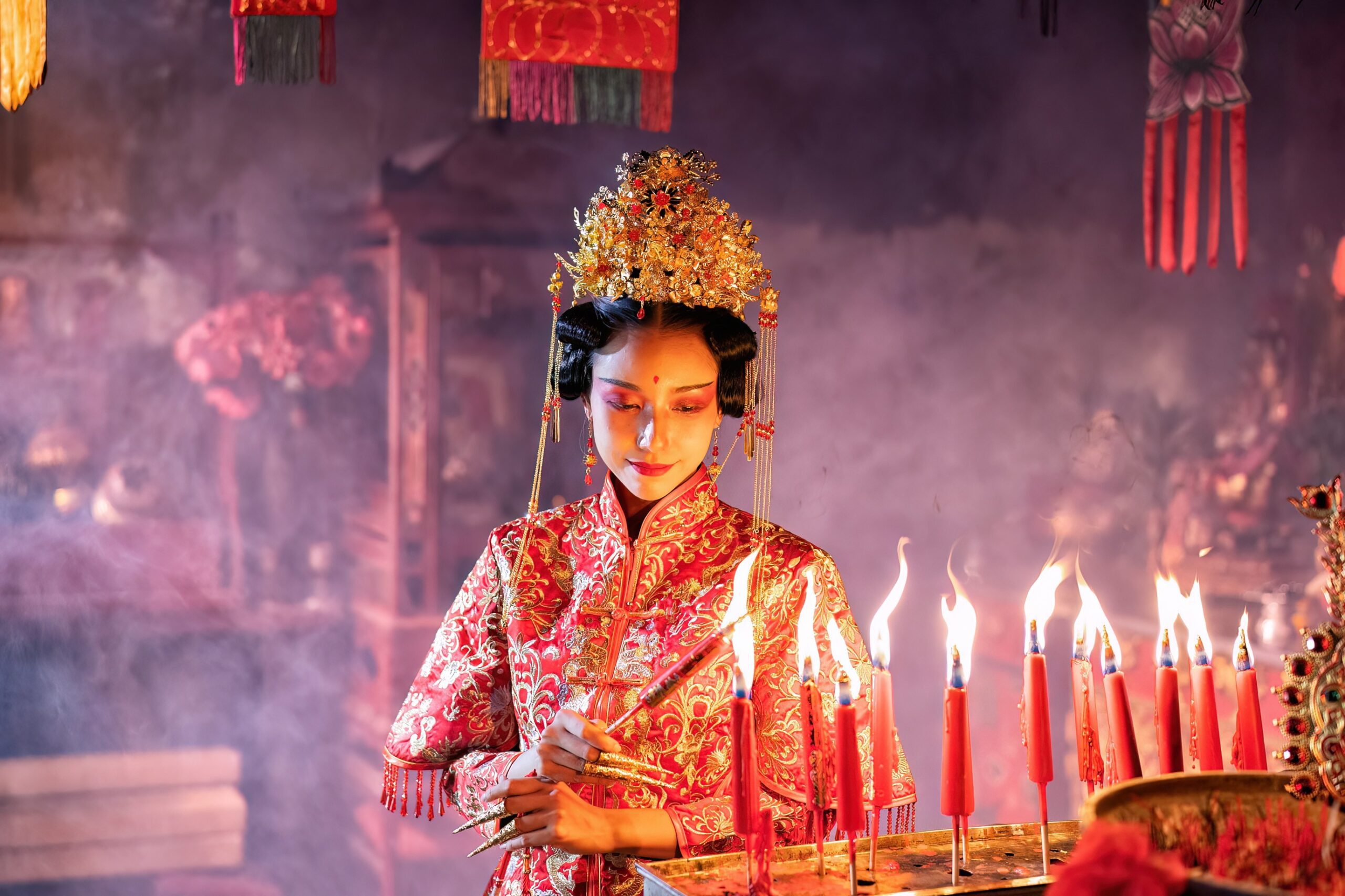
During the Ghost festival, celebrants offer food and drink to the ghosts / By piasupuntongpoolvia Envato
8. Mooncake Festival (October 6, 2025)
The Mooncake festival is one of the biggest festivals in Malaysia for Chinese people. It is celebrated during the end of September or early October and is, therefore, also called the mid-autumn festival. The mooncake festival is a joyous celebration with family, mooncakes, parades, and lanterns. What’s a mooncake, you might wonder? These sweet palm-sized pastry treats symbolize togetherness and are filled with red bean and lotus paste, cured egg yolks, caramel and more.
“Every celebration – and practically every day – in Malaysia is centered around food,” says Ismail. “It’s hard to answer why other than to say that food and the sharing of it with loved ones is ingrained in the Malaysian culture so it is no surprise that many of the celebrations also center around that.
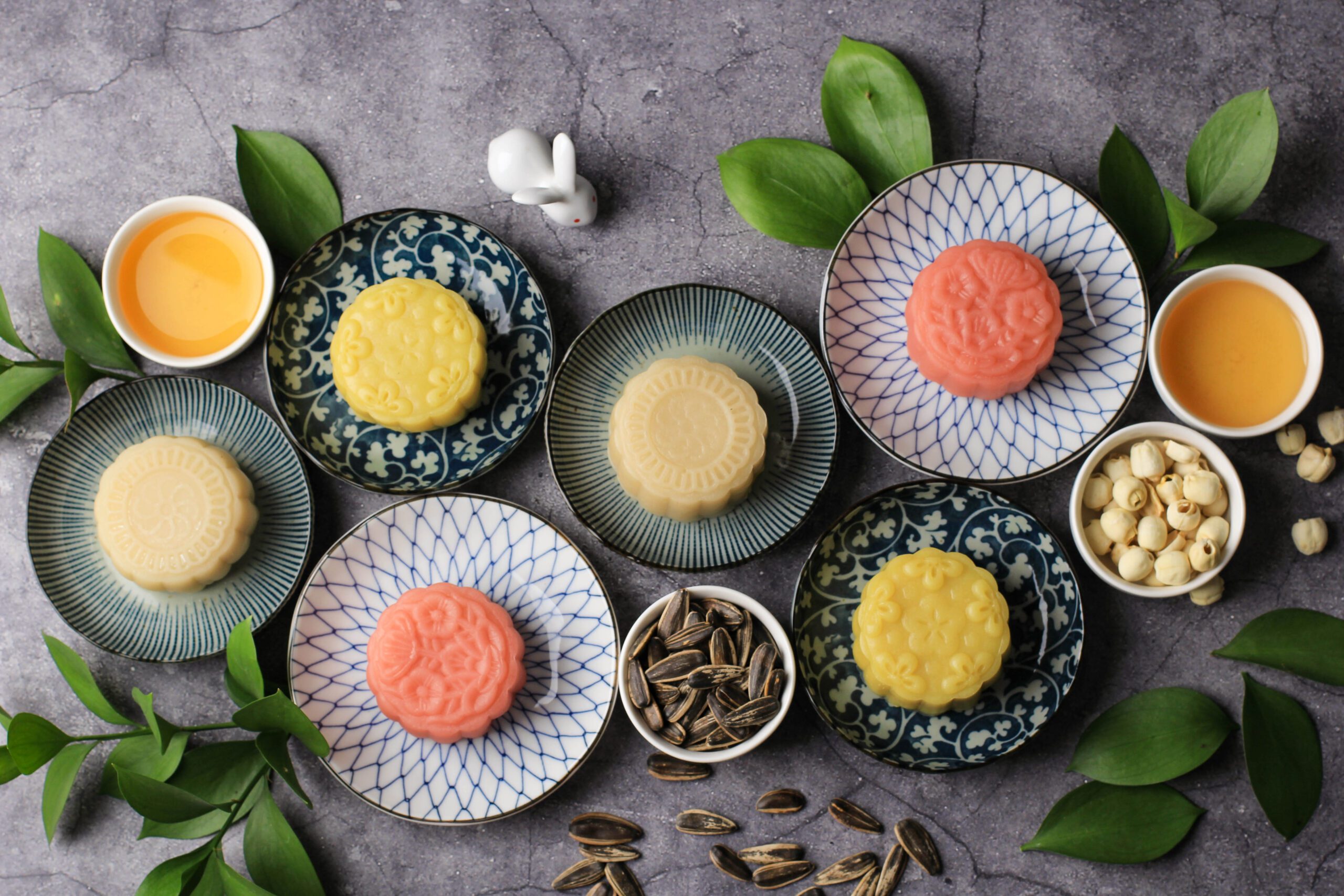
Mooncakes are a traditional Chinese sweet dessert / By ikadapurhangus via Envato
9. Deepavali (October 20, 2025)
Deepavali is the most festive holiday of the year for the world’s Hindus. Hindus traditionally rise early on Deepavali and take a ritually prescribed herbal oil bath, which is meant to represent the washing away of one’s past sins. A family prayer service will then often be held in homes, and some will also go to a local temple for additional rituals and acts of worship.
Houses are decorated with colour-paper lanterns and with “kolam” this time of year. Kolam refers to intricate, temporary floor designs made out of dyed rice and colourful powders. There are also fireworks displays, gifts of money for children enclosed in purpose or yellow packages and sweet and savory foods like rice pudding.
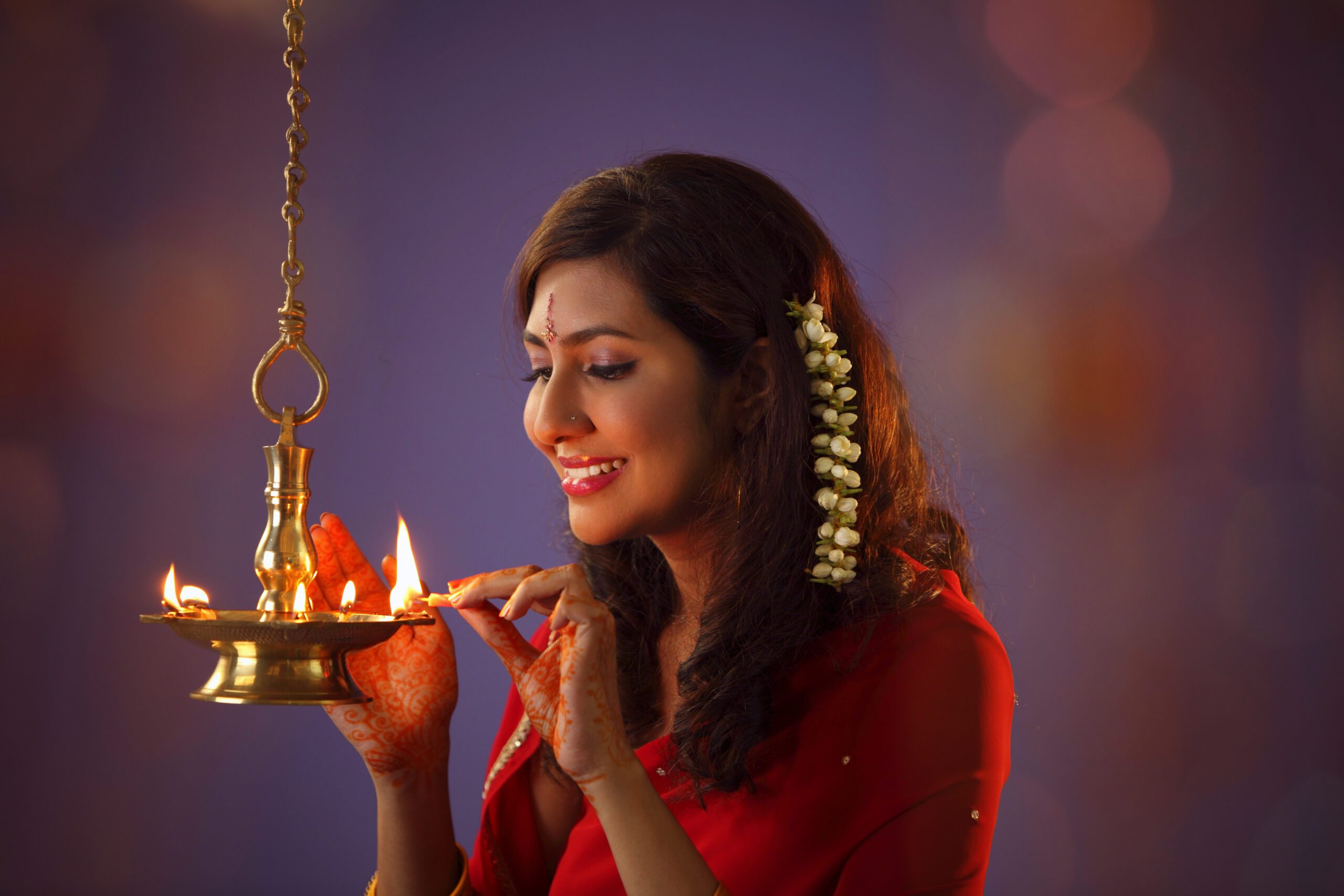
A woman devotee lights lamps as she celebrates ‘deepavali’ / Photo Malaysia Tourism
Find more to do in Malaysia, with UNESCO Geopark Festival, craft festivals and cultural festivals, on the Malaysian Tourism website here: https://ebrochures.malaysia.travel/calendar-of-events/
Disclaimer: We’re always proud to showcase countries from around the world that are welcoming to women over 50 and female solo travellers. Since we haven’t experienced this country, we want to let you know that the material for this article was provided by Tourism Malaysia, as part of a sponsored campaign with JourneyWoman.
More to Discover From Malaysia
Journey to the Heart of Malaysia through its Breakfast Culture
Malaysia’s Breakfast Culture features staple foods beloved by all Malaysians, fostering unity and harmony within its multi-ethnic societies.
Six Places for Women to Find Adventure in Perak and Beyond in Malaysia
With ancient rainforests, nature sanctuaries, and botanical gardens, Perak, Malaysia, offer many activities for adventurous women.
Kuala Lumpur: Exploring the Vibrant Heart of Malaysia
Kuala Lumpur, Malaysia is a melting pot of cultures, where you will find ancient rainforests, gorgeous beaches, urban sophistication, a wide variety of food choices, history and friendly people.

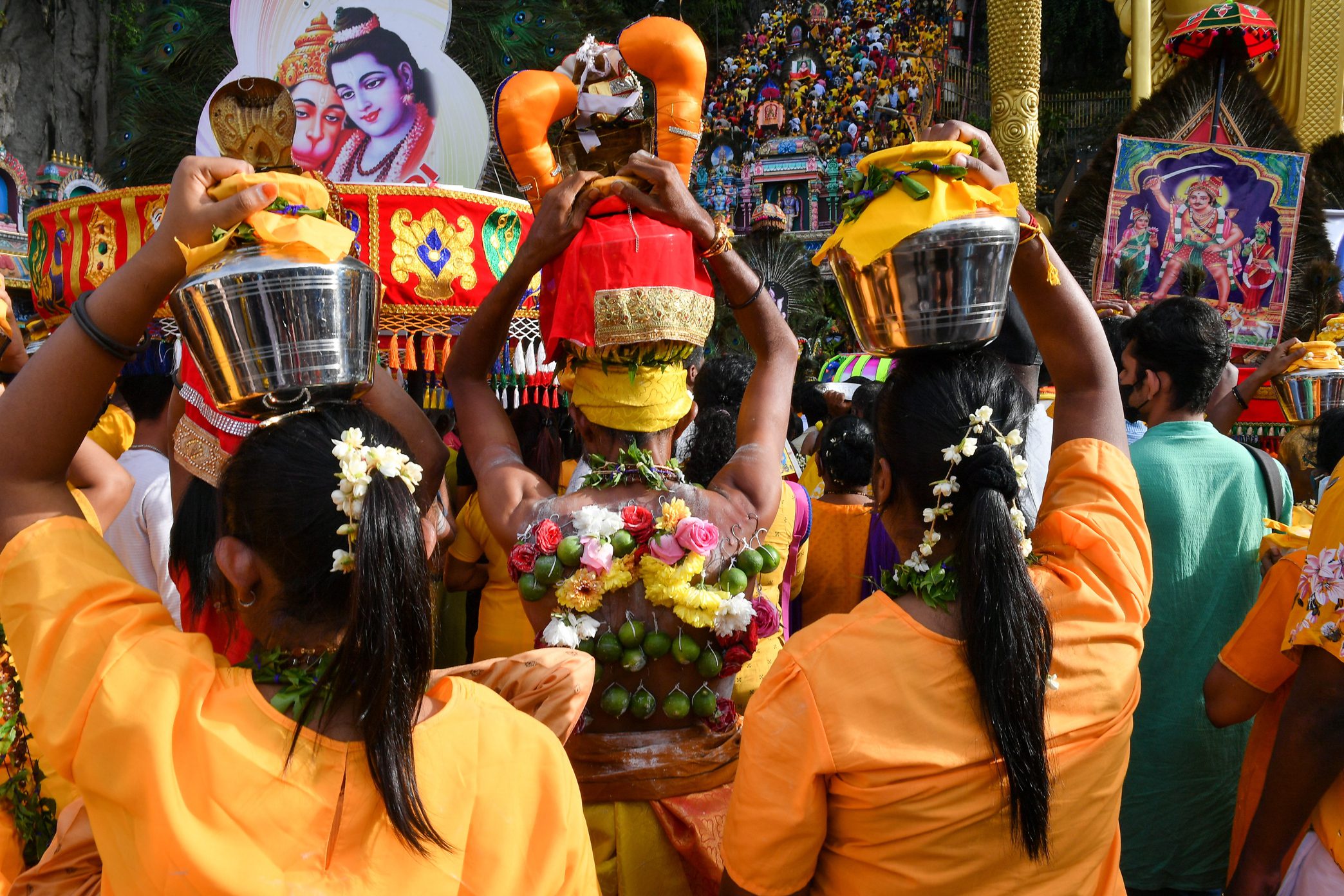



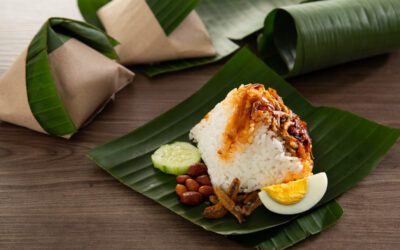
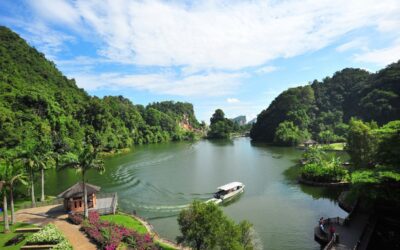
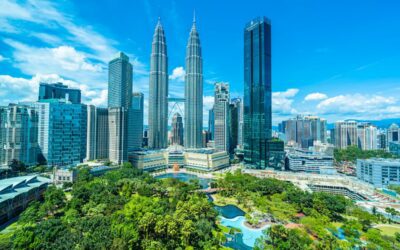
Wow! Malaysia’s festivals truly highlight the beauty of unity in diversity, what an inspiring way to celebrate culture and community. Malaysia is on my list for 2025, fingers crossed I get to experience one of these vibrant festivals someday.
I am really interested in the Visit Malaysia Year 2026. I am hoping that it will be one of your featured tours on the JourneyWoman website. I will have to watch the webinar by YouTube but look forward to seeing Ann Leong’s talk about it.